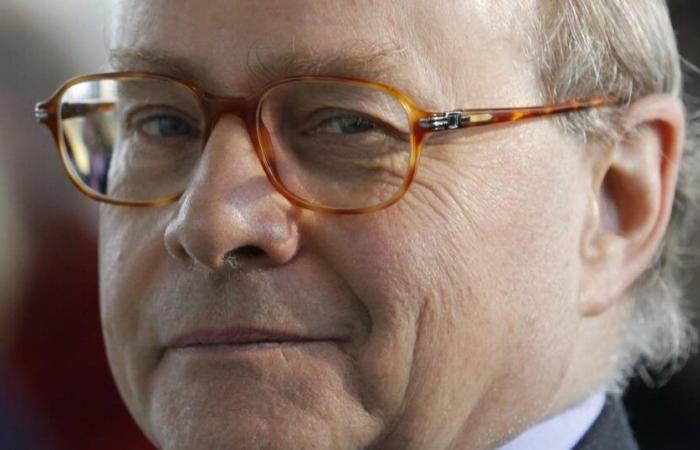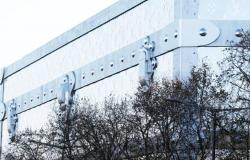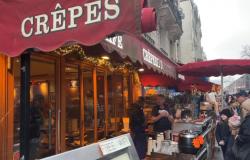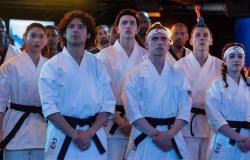The only son of former President of the Republic Georges Pompidou and Claude Pompidou, died at the age of 82, the Claude-Pompidou Foundation said on Thursday.
It was 1942, at the darkest point of the war. In the home of a young teacher, then unknown, a newborn child was welcomed. In occupied Paris and subject to terrible restrictions, it took courage and a lot of love to expand a family in this way. From then on, the happiest of fates accompanied Alain Pompidou. With Claude and Georges, his parents, he would form, according to him, an indestructible trio.
For a long time we knew almost nothing about Alain Pompidou. It was a happy time when the media respected the privacy of public figures and when they considered themselves bound by extreme reserve. We only knew the brilliant career of this doctor, specialist in blood diseases. From 1974 to 2004 he was professor at the Paris Faculty of Medicine and head of the cytogenetic cytology department at Saint-Vincent-de-Paul hospital from 1987 to 2004. From the 1980s, he also held positions of responsibility : responsible for the AIDS file with the Minister of Health in 1987-1988, he became scientific advisor to two prime ministers: Édouard Balladur and Alain Juppé. European Parliamentarian from 1989 to 1999 then President of the European Patent Office from 2004 to 2007, he only came out of silence after the disappearance of his mother, Claude Pompidou, in 2007.
Restoring the truth
He had been the closest witness to his father's life but the extreme modesty of feelings which he had inherited dissuaded him from expressing himself. He only decided to give his testimony a dozen years ago when he asked me to publish with him a quantity of unpublished writings by Georges Pompidou, in particular a fascinating correspondence with his youth friend Robert Pujol (Georges Pompidou. Letters, notes and portraits, Robert Laffont 2012 and Tempus Perrin 2024).
Alain Pompidou then worked to reestablish the truth about his father and in particular about the illness which took him away on April 2, 1974 and the beginnings of which had appeared the day after the events of May 1968. Contrary to legend, Alain did not directly treat the president. In constant contact with the medical team led by Professor Jean Bernard, his mission was to provide him with psychological support. A very difficult and delicate role because it was impossible at the time to predict the probable course of the inexorable evil and subsequently to usefully inform the Head of State. We can imagine the terrible solitude of Alain Pompidou, forced into silence, including towards his mother who, until the end, wanted to deny fate.
Jean-Christophe MARMARA
By taking up his pen, Alain Pompidou also intended to dispel misunderstandings about the relationship between his father and General de Gaulle. He did not deny the distance that had gradually developed between the two men, who had been inseparable for a long time. He even very precisely located the first crack between them in 1965, when the founder of the Fifth Republic very late warned his prime minister of his intention to seek a new mandate. He also did not hide the hurt felt by Georges Pompidou in May 1968 when he felt disowned in his management of the troubles nor obviously his disappointment when, shortly after, at the time of the terrible Markovic affair, he guessed that he would not was not supported. But all this, he emphasized, did not prevent his father from showing the most sincere admiration to the one who had “revealed him to himself” and whose successor he wanted to be, determined to preserve the best of his heritage.
His last years, darkened by cruel trials, Alain Pompidou devoted them to energetically putting his father's private archives in order.
An incomparable, devoted, warm friend, Alain Pompidou never tired of recalling the chance he had to enter life supported by such parents. Very attentive to the future of the Center Pompidou of which he was a long-time administrator, he evoked in a book (For the Love of Art, Plon, 2017) the passion of the presidential couple for modern art. To his mother, whose work he endeavored to continue by overseeing the Claude Pompidou Foundation, now chaired by Claude Chirac, in 2016 he dedicated a book of memories (Claude. It was my mother, Flammarion) before recently renewing the same exercise to express his debt to his father (It was Georges, my father, Robert Laffont 2023).
His last years, darkened by cruel trials, Alain Pompidou devoted them to energetically putting in order his father's private archives, rich in correspondence with almost all the great writers and artists of his time. This treasure of which he wanted to be the vigilant guardian is now in order in the National Archives. The memory of Georges Pompidou, this great president that the French are rediscovering, owes a lot to him. Few heirs of a great name have proven themselves more worthy than him.






